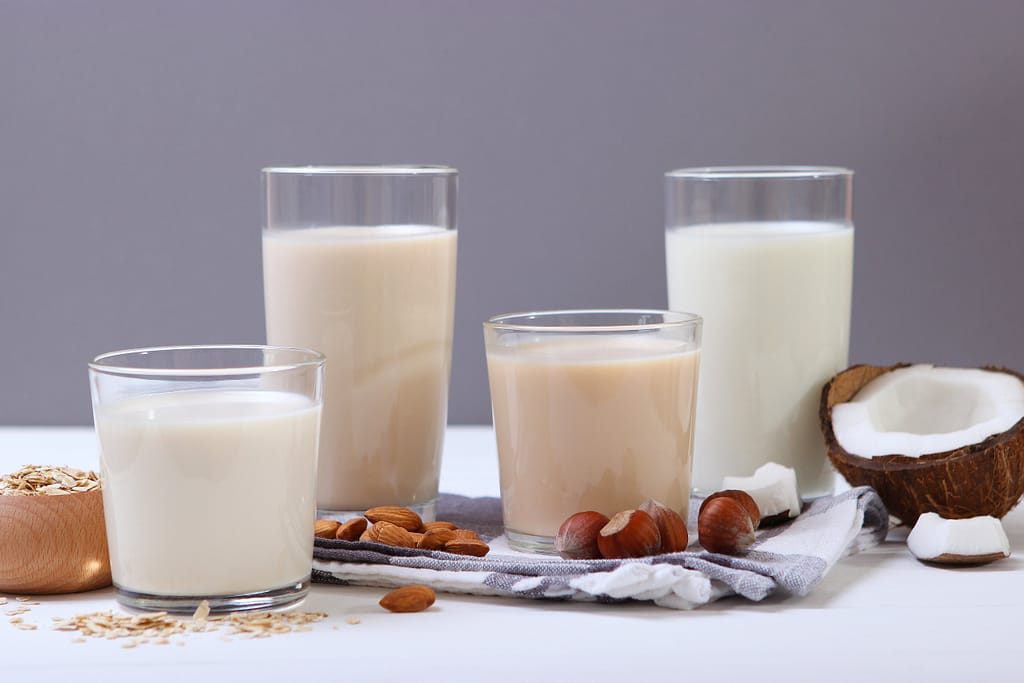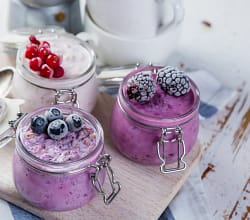
Alternative milks are becoming more popular by the day and are beginning to dominate many grocery store dairy shelves. Many people love them due to their versatility and plant-based nutritional benefits. One important use for non-dairy milk is to convert it into non-dairy yogurt, which is particularly great for those looking for a dairy yogurt replacement. There are many kinds of non-dairy yogurts, and they can replace traditional yogurts in practically any situation.
Non-dairy yogurts are special because they contain plant-based unsaturated fats and proteins. They are perfect for lactose-intolerant and vegan individuals looking for a suitable dairy yogurt replacement.
All non-dairy yogurts have different properties to them, and I ranked them based on four different factors. These are the taste of the yogurt, the physical texture of the yogurt, their nutrition facts, and their overall cost. These four criteria can help you determine which non-dairy yogurt is best for you, although there is no one-size-fits-all solution.
With that out of the way, here is the analysis for the 5 most popular non-dairy yogurt types! I do not rank them in any particular order.
1. Almond milk yogurt
One of the most popular non-dairy yogurts, this yogurt is made from blanched almonds and live cultures with a thickener.
Taste
Tends to have a strong, nutty flavor. Its creaminess feels good in the mouth.
Texture
It has a creamy, rich texture, usually thick and viscous.
Nutrition
An 8-ounce cup of vanilla almond milk yogurt contains 220 calories, 8g of fat, 26g of sugar, 2g of fiber, and 3g of protein.
Almond milk has more healthy, unsaturated fats and fiber than most other yogurt types. It also benefits from having less sodium. However, it has a high amount of calories and a low amount of protein.
Cost
You will find plain, unsweetened cups to be some of the cheapest yogurts on the market. Conversely, flavored variants of almond milk yogurt tend to be some of the most expensive. Therefore, it is smart to buy plain almond milk yogurt and add your own mix-ins at home.
Summary
Plain almond milk yogurt is cheap, reliable, and tastes delightful, but it doesn’t contain many useful vitamins, minerals, and proteins.
From this information, it is best to consume almond milk yogurt as a side cup to your main breakfast. Your main course breakfast should preferably be a high-protein, hearty meal, like an omelet or oatmeal bowl.
Of course, you may have almond milk yogurt as a snack any time of the day, but this is the best way to get the most use out of it since it is high in calories and fiber. It is best to consume it in moderation, especially if weight loss is your goal.
2. Coconut milk yogurt
The mashed-up flesh of coconuts combined with water (or coconut cream) make up this thick yogurt.
Taste
It is highly sweet and about as thick as almond milk yogurt. Some brands also taste somewhat tangy.
Texture
Incredibly smooth, thick, and slightly more runny than other non-dairy yogurts.
Nutrition
An 8-ounce cup of plain coconut milk yogurt contains 166 calories, 5g of fat, 20g of carbs, 2g of fiber, and little protein.
It has more saturated fat and less protein than other non-dairy yogurts, but it has a great amount of vitamin D, calcium, vitamin B12, and medium calories.
Cost
The middle of the pack, coconut milk yogurt tends to not cost much differently than Greek yogurt or dairy yogurt. It may be slightly higher or lower in price depending on where you buy it.
Summary
Coconut milk yogurt is notable for having plenty vitamins and minerals that the other yogurts don’t have. It is a great snack yogurt to enjoy any time of the day, and its flavor is unique among all the other yogurts.
3. Cashew milk yogurt
Cashew milk is known for being a rich, creamy, and solid base for smoothies, and this yogurt retains those qualities well. They are made by soaking cashews in filtered water overnight, then blending afterward.
Taste
It mainly tastes delicate and very rich. Some brands have sweet feel to them.
Texture
It has a silky and smooth texture. It has a similar consistency to dairy yogurt (not Greek).
Nutrition
An 8-ounce cup of unsweetened cashew milk yogurt contains 166 calories, 9g of fat, 4g of protein, 1g of sugar, and 1g of fiber.
It is a very well-rounded yogurt as it has a medium amount of calories, unsaturated fats, protein, and live cultures.
Cost
The overall cost is slightly above average. Forager, the most popular cashew milk yogurt manufacturer, sells 24-ounce cups at around $6.5, which is slightly above dairy yogurt’s price.
Summary
Cashew milk yogurt can work great in any meal type or on its own. If you are looking for a balanced plant-based yogurt that is as similar as possible to dairy yogurt, look no further than this type.
4. Oat milk yogurt (Oatgurt)
Oat milk is the second most popular alternative milk behind almond milk, and its derived yogurt is easily made with a base of rolled oats, water, and a thickener.
Taste
Has almost the exact same taste as dairy yogurt, but with a mild taste of oats.
Texture
A creamy and smooth texture that’s not too different from cow’s milk.
Nutrition
8 ounces of Oatly’s Oatgurt contains around 220 calories, 10g of fat, 6g of protein, 21g of carbs, and 1g of fiber.
Being derived from oat milk, it has a great amount of protein, calcium, and iron, although it has a fairly high number of calories. It is worth noting that this brand of yogurt also has less fiber than the milk it is made from.
Cost
Slightly above average. A single cup of Oatly’s Oatgurt costs around $2.49. It may be cheaper to make this yogurt at home from scratch.
Summary
Oat milk yogurt is not produced by many manufacturers, but it is nonetheless notable for having the highest protein count of all non-dairy yogurts. It can be a great post-workout snack or morning side with oatmeal. It is fairly affordable as well and does not differ much from dairy yogurt.
5. Soy milk yogurt
This yogurt is extraordinarily simple to make-it is made only from soy milk as a starter. Soy milk is ranked similar to oat milk in terms of popularity. It contains soybeans.
Taste
It has a mild and creamy flavor. It may also have a beany, soy-taste that may be unpleasant to some people.
Texture
Rather thick and slightly runny.
Nutrition
An 8-ounce serving of soymilk yogurt contains about 150 calories, 4g of fat, 12g of carbs, 8g of protein, and 2g of fiber.
Soymilk yogurt is notable for having the least amount of calories and total fat of all yogurts on this list. It also takes the crown in protein. It unfortunately has less calcium and iron than other types, however.
Cost
Average cost, although some stores seem to sell it at a few cents cheaper.
Summary
Soy milk has a lot going for it in the protein, calorie, and fat departments. This is the best non-dairy yogurt for weight loss since it kicks saturated fat and cholesterol and contains the most protein. The taste, however, is unusual among yogurts and may take some time to adjust to. I would recommend mixing fruits, nuts, or spices in with plain, unsweetened cups.
Conclusion on non dairy yogurts
All the non-dairy yogurt types work best for your body in different situations. They all taste and feel different, contain unique nutritional values, and are not too expensive. They all inherit the properties of the nut or base that they are derived from. Experiment and see which non-dairy yogurt works best for you!





